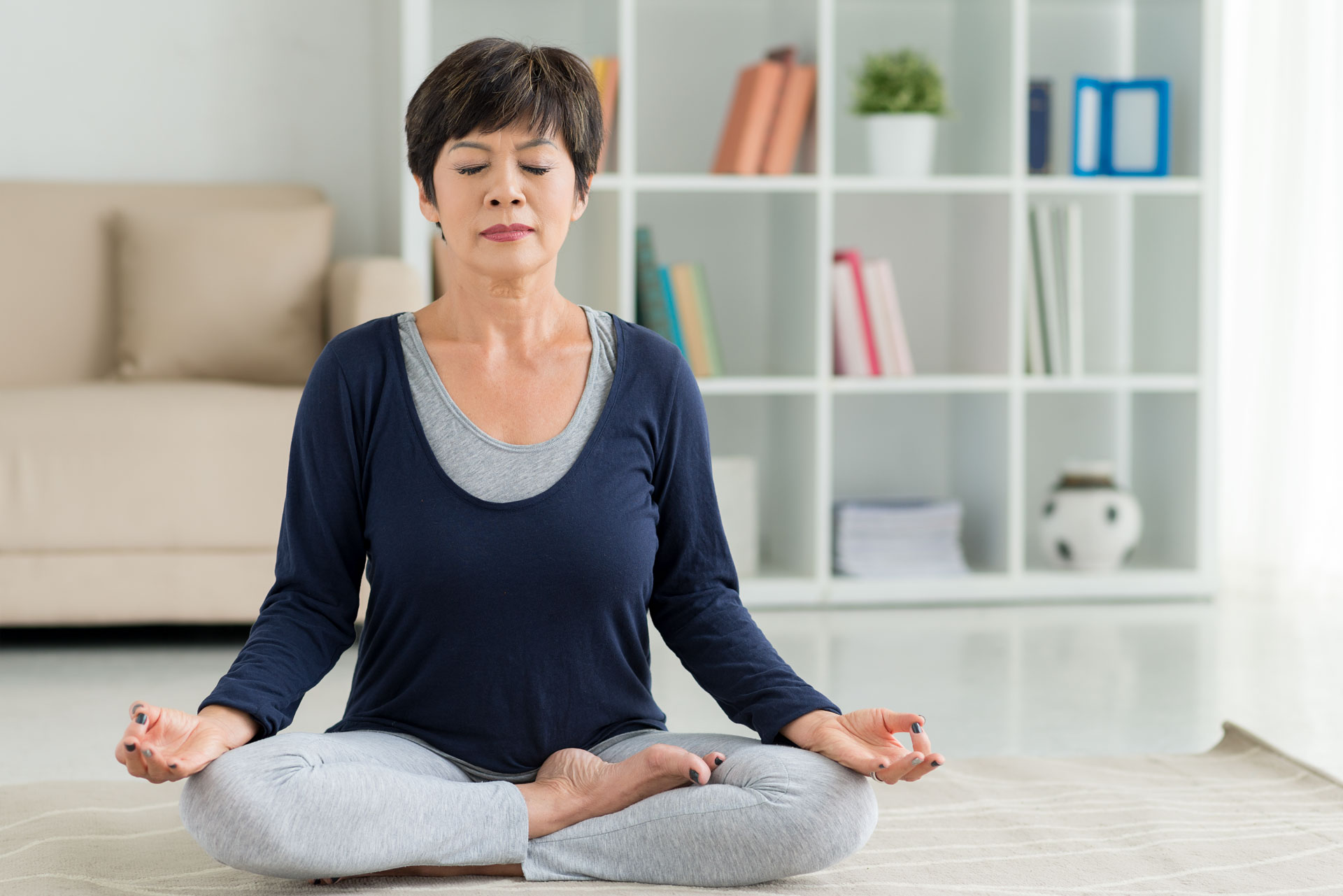
Protecting Nurses’ Brains: Meditation for Beginners
After a busy shift at the hospital or a long day at work, our bodies may be exhausted but our minds are often still spinning. Most of our work, as nurses, is mental (and I’m not talking about the “You won’t believe what happened today” kind of mental).
Our brains are constantly processing massive amounts of information regarding patients and procedures and prescriptions, not to mention all of our own personal stuff like errands, appointments, and pick-up schedules.
So when we get home, it’s hard to turn our brains off. It’s hard to slow them down. And when we can’t slow them down, that’s when feelings of anxiety, stress, and even depression creep in. Now more than ever we need to learn to take care of our brains.
Ten minutes of quiet meditation can help your brain unwind from a hectic, stressful day.
But too many of us don’t meditate because we don’t know how or because it seems way too hard — it’s easier to turn on the TV or pour a glass of wine, sometimes. But neither of those actually help your brain — they just distract it further with additional stimuli.
The thing is, meditation isn’t really difficult. What is difficult, though, is committing time each day to doing it. It’s about not skipping it no matter how busy your day is. Meditation is an important reset activity with your brain that will help you with everything else you do.
Here’s how to do it:
Step 1: Commit to Doing It
Go ahead, right now, say out loud, “I am committing to meditate for 10 minutes every day for a week. No more, no less.”
Say this out loud to yourself 5 times until it sinks in that you are going to do this for one week.
Step 2: Dedicate a Specific Time Each Day

Take a look at your schedule each day. Set aside 10 minutes to meditate, preferably during a quiet time, like before bed.
Go ahead and schedule those 10 minute periods in your calendar right now and set an alert for each. Lock them in.
Step 3: Choose a Place

Choose a location that is relatively free from distractions. You want a minimum of background noise so make sure the TV, radio, computer, etc. are all off. Choose a location that feels calm and quiet to you.
If the only quiet room in your home is the bathroom, then plan to spend a solid 10 minutes in there each day.
Step 4: Have a Seat

You can forget the stereotypical sitting positions for meditating. You don’t have to twist yourself into a pretzel. You just have to be comfortable, whether you are on the floor, a pillow, or the couch.
Settle in comfortably.
Step 5: Notice How Your Body Feels
Take 60 seconds to notice how your body feels, starting at the top of your head, working your way down your neck to your shoulders, out to your fingertips, then through your torso to your hips, and down your thighs to your knees, calves, ankles, and your feet. How do your toes feel?
The key to meditation is being mindful. Focus your full attention on how each part of your body feels. Don’t diagnose, just notice how it feels.
Step 6: Breathe

Mindful breathing is more deliberate than the automatic breathing we do all day. When we meditate, we want to focus our attention on our breathing — the act of breathing, how it feels, how it sounds.
Breathing becomes our focal point that will help our mind stay focused and free from distractions.
A good breathing technique for beginners is the 4-7-8 technique. Inhale for a count of 4. Hold for a 7 count. Exhale for a count of 8. Repeat.
Step 7: Re-Focus Your Attention
It is totally natural for your mind to wander while you breathe. Life is filled with distractions and they like to peek around the corners of your mind and wave their hands at you. “Pay attention to me! Love me!”
Be aware when your mind wanders and refocus your attention on your breathing. It’s okay if your mind wanders but bring it back: inhale for 4 count, hold for 7, exhale for 8. Repeat.
Step 8: Limit Your Time
Your goal is not to meditate for hours. Set yourself a very short goal to meditate for 10 minutes. When you have reached your goal, stop meditating. Don’t push yourself too fast, especially in the beginning. As you practice daily, you’ll find your focus increase, your wanderings decrease, and meditation become easier for you.
NursePower Empowers Nurses!
Aging at home is a growing trend. More people want to stay in their homes or with loved ones but they need extra help that only a nurse can provide. As Baby Boomers age, the need for private-duty nurses and homecare workers increases.
We launched NursePower not only to help our clients but to help nurses find greater work/life balance as private duty nurses working for an agency founded and run by nurses!
We are sharing our blog series with you because we know how hard it is to be a nurse. We care about your well being — physical and mental.
Please take the time for yourself everyday to find a quiet place and meditate. We know you need it and we know you deserve it!
